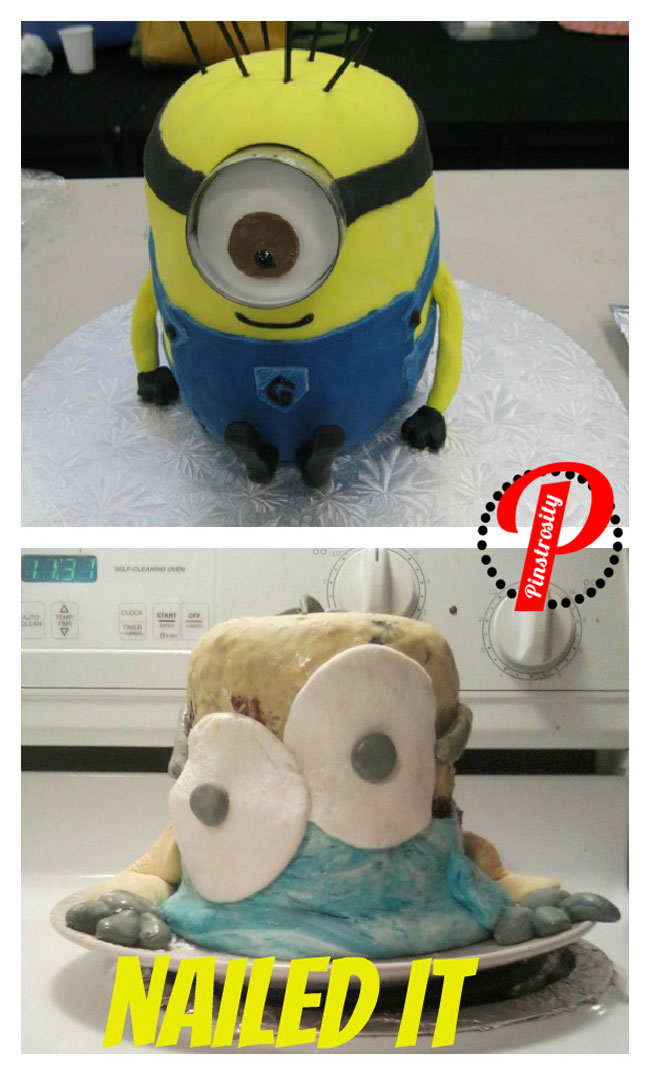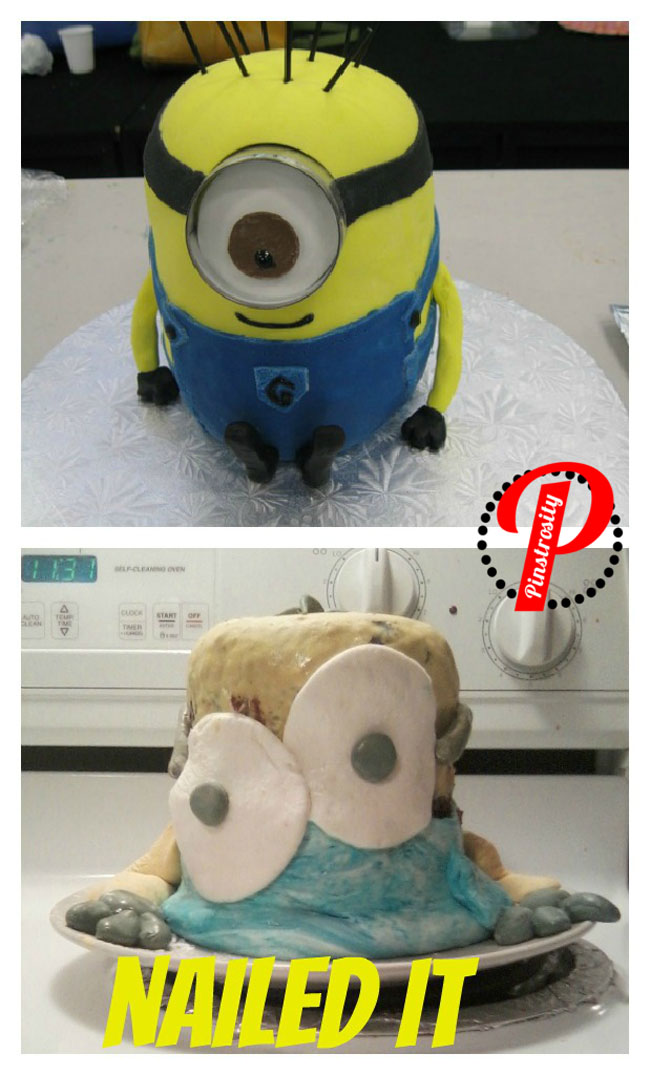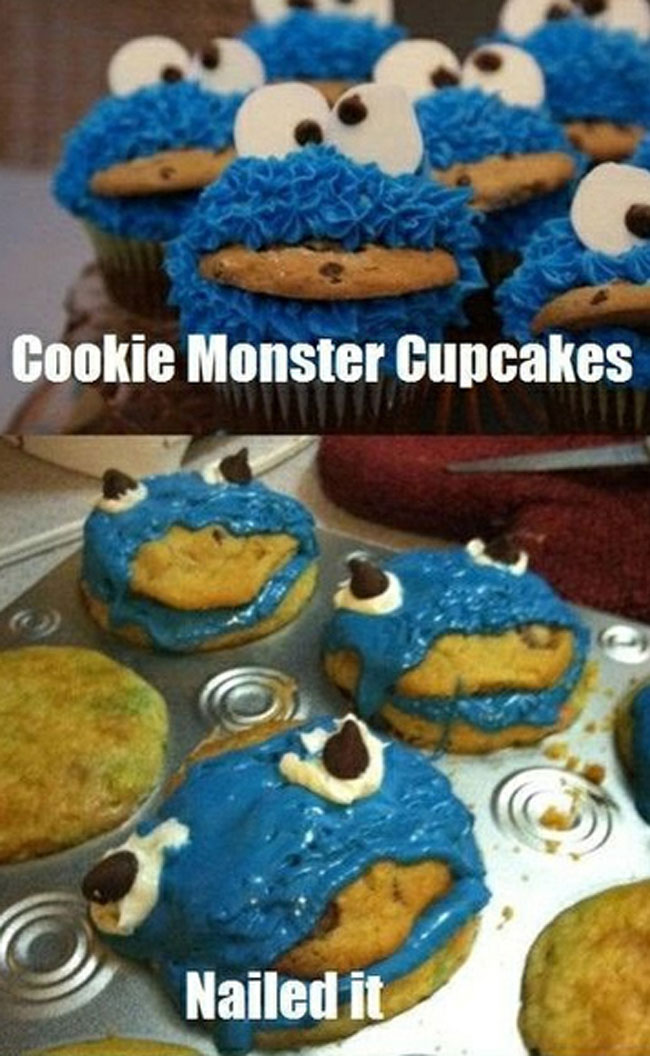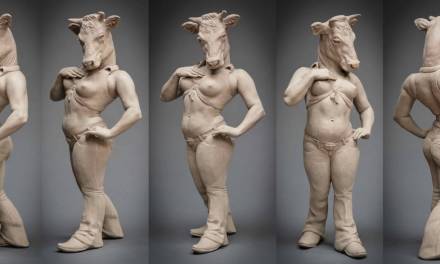IDEAL: How the world “should” be. Let’s ignore the differences of opinion about what “ideal” means to different people and let’s just simplify by saying an “ideal” world is one which is fair. People are judged by their merit in personality and in the work they do. There is no such thing as privilege, or unfair advantages, or prejudice and bias (either conscious or unconscious). Chance and luck and coincidence are nonexistent.
REAL: How the world actually is. Sometimes people are good and sometimes people are bad. But even good people have unconscious prejudices and biases. Because of unavoidable privileges no one starts on an even playing field. Chance and luck and circumstance affect everyone differently, and randomly. Even under the best of circumstances, nothing can be 100% fair to everyone.
Still with me? Seems simple enough, right? We all know that the world can be an unfair place. However, how we operate between the two extremes of Ideal and Real has an undeniable affect on how easily we move through the world. To be successful, you must make choices that place you on the spectrum between insisting on the Ideal and coming to terms with the Real. It is a personal choice for each and every one of us, and it affects everything you do.
Examples!
—Finding Work: As an Art Director, the number one question I get is “How Do I Contact Art Directors?” That’s a valid question, and the answer is, you find the AD for the company you want to work for, you email them or send them mailers, and eventually they give you work. Unfortunately that’s not the answer most people want to hear. They want to know how to find those Art Directors. I say use the internet. Do some research. Go to conventions. Use social media for research. That’s not good enough. People want a list of contact info for every AD in the biz handed to them on a silver platter. Well, in an ideal world, that would be available. (Honestly, it kind of is, on twitter.) But in the real world, ADs are a bit harder to find. Although it’s certainly not the conspiracy many artists make it out to be, the fact is, we’re busy and we think we are easy enough to find already, and if an artist isn’t dedicated enough to doing a little legwork to find us, well then, maybe they’re not trying hard enough, because plenty of artists find us just fine. But time and again (it’s certainly the most popular tag on DearAD) artists complain that there’s no list of ADs’ info being spoonfed to them. That it’s not fair that it’s so hard to find ADs. They seem to think that being an artist entitles them to this information automatically. And honestly, it’s kind of insulting to the ADs out there who are doing so much to make themselves accessible to artists at cons and on the internet (and writing this column). So the artists who are so hung up on how they feel that it should be easier to find ADs miss the very real opportunities to find those ADs in reality.
—Sexism: This is a very loaded topic, and I’m going to wade into the mine field for a second. Let’s just take it as a given that sexism exists in our culture, and soft (unconscious) sexism is hard as hell to prove, or fight. So in a world where women are told to act more like men to be taken seriously, what is fair? There’s a part of me that says being nitpicky about things like vocal fry are over-policing women, that “equality” doesn’t mean we have to be more like men to succeed. Yet, I know that working to eliminate upspeak and over-apologizing in my language really does have real results in how people of all genders in the workplace respond to me. Ideally I will continue to fight the unfair criticisms of women…but in reality I know I will be more successful getting my ideas in the workplace taken seriously if I package my language in a more forceful male style, and I have learned to do so.
—Awards: This is a huge topic lately that keeps coming up again and again and as a frequent juror of things, I can’t help but roll my eyes when people cry “not fair” on juries. Awards and annuals and show juries are not always perfect. But they are the best method we have to highlight and award the best work in the field, and honestly, they do a very good job. Yes, there are outliers who are pushing the envelope so far or are so outside the average that they do not get properly recognized by juries and awards immediately, but in the main, juries are the fairest method we have for finding the best work in a given field. I will continue to be on juries and fight for skill and quality over style and personal preference in rewarding artists and Ideally that will never leave a worthy piece of work out. In Reality I know sometimes this method leaves out some worthwhile work, but I will continue to support awards and contests and annuals—not only for the good they do in celebrating our peers, but also the good they do in exposure outside the SFF art world.
I do not understand artists who do not get into an annual on their first try and then complain and refuse to enter ever again. You have to participate to change trends, you can’t just take your toys and go home. If you refuse to enter these contests and annuals, then you can’t complain when art like yours is not recognized and rewarded.
These are just a few examples, but I think you can see what I mean. Don’t let an insistence on the world having to be fair keep you from being successful in the world as it is in reality right now.
Personally, I choose to fight to bring about my ideal world while I make concessions to operate in the reality of how the world really is. Some people might be appalled at the concessions I have made either personally or professionally to how the world is, and that’s their right. I choose my clothing and makeup for the effect it will have on others, especially in the workplace. I continue to dye my hair because it makes me feel good to choose that about myself, but also because it’s really helpful to be visually branded and easily identifiable as a geek and an artist. I try to alter things about my speech and bearing to boost my confidence and counterbalance soft sexism. I use psychological tricks to be taken more seriously by people in business I need to get approval from in meetings. But I also have a strong internal moral system that I adhere to and there are a lot of things I will not budge on.
Some people choose to stick much more closely to fighting for and insisting upon their ideal, and other people will choose to go with the flow much more than I have, bending their morals to work with the system as it is. This is for each of us personally to decide. That’s what makes up our personal morals. Morals are important, and they should be made consciously, and for you alone, not because someone told you to believe a thing. They can also adapt and change. If a moral you feel is important is holding you back, that is your right and your choice. Choose it or change it. And then don’t complain that other people are making other choices, or that the world isn’t fair. It’s not ever going to be perfectly fair.
Go ahead, bitch about it to the friends and family you can safely bitch to: Life Isn’t Fair. Then pick yourself up and get on with it.
But this is the most important thing…even while you are making accommodations, you should be trying your best to make the world more fair. While I operate in the “real” world, I am also actively trying to change it for the better. Through education, through volunteering my time to artists, and through writing this column, I try to make our corner of the art world a better place. I challenge you to do the same.













Wonderful post. What an eye opener this will be for some and an insight for others. If the reader of this article can't see themselves in this somewhere, then they just might be in that perfect place or in complete denial. I applaud your efforts and sincerely hope that you will continue to do so. I look forward to your writing, even when I don't readily agree with you. Being honest with ones self is often a difficult bite to swallow. Great article! Thank you.
A perfect post
Great articule Lauren, nailed as always.
Great article!
I second the fact that art directors' contact information is readily available.
When I was in Art School, I had this teacher that actually made it into an assignment, to find the contact information of as many art directors as we could find. Not only did this get the ball rolling, but it made me realize how easy it is to find the information. Start an excel sheet and just go to town…
I've barely even scratched the surface, but I'd wager that I could find the contact information for three companies' ADs every day for the rest of my life, and this takes probably ten minutes each day, all told.
I've been working on a contact list for a little while now and I'm up to like 180+ names and counting.
It's EXTREMELY easy to find the contacts for most any company you can find on the internet. If you really want to get spoon fed the names (albeit some of them are slightly dated) go to LinkedIN, search ANY company, and then look through the employees listed. Most of them are on there. And if not there, then just go to the company's website and start your search there.
With all the multitudes of annuals out there, Spectrum being a great start, you can just thumb to any picture in the book and see the ADs name plain as day. It's actually pretty easy, ultimately.
Other than that, all I can say is get some perseverance and grow some backbone…
—– Lauren Panepinto: “I do not understand artists who do not get into an annual on their first try and then complain and refuse to enter ever again. You have to participate to change trends, you can't just take your toys and go home. If you refuse to enter these contests and annuals, then you can't complain when art like yours is not recognized and rewarded.” —–
Enter as many of the annuals as you can people. Agree wholly with her!
Anyway… thanks again!
Wonderful article. Thank you!
Wow, yes! One of the things that has always bothered me is when people e-mail me and ask me to tell them how to contact someone else, how to find work, how to get started, and so on. I always want to tell them, “if you really wanted to do this, you would be figuring it out instead of asking me to figure it out for you”, but I want to be nice and not turn people into enemies. It's hard to find the balance, sometimes.
Great article, Lauren. No, the world is not fair, but you don't always have to work within the parameters you're given. If you don't like your situation, change the rules. If you don't get into that super-competitive annual, apply to others, make your own book/show/collective, work harder and try again. Even if you never get it, if you're always working, you're always improving, so you win no matter what. If the end goal of your art is to be in a juried contest, then aren't you doing it for the wrong reason?
Thanks guys!
After reading the questions on Dear AD, I completely understand where this article is coming from. Thanks for the dose of tough love!
Great article, Lauren! Some hard truths told that I think people just need to realize. In regards to contacting ADs and getting their contact info, I wonder if all those questions come rushing in more from a lack of patience and persistence rather than an actual inability to find contact info. Because, as it's been said, it's pretty readily available on the internet if you search and there's even services like Agency Access that do all the legwork for you and provide contact info for a vast array of people. I think maybe all those questions stem from people emailing and sending mailers maybe a handful of times, not hearing back, and becoming disheartened thinking they're doing something wrong. I can understand that part of the struggle but it doesn't mean you abandon all hope or question your perfectly-sound methods. Otherwise there's even more lazy people in the world than I think. I also don't understand the people who get angry about not getting into contests and awards…. I mean… really? It's a competition; it's going to be intensely difficult! And sure certain artists get in repeatedly but their work is amazing and qualifies them each time. So yeah, a lot to digest from this post and I'm sure it's a great wake up call for everyone, including me to always remind myself of this ideal vs real. PS loved the Nailed It images.
QUOTE: “People want a list of contact info for every AD in the biz handed to them on a silver platter. Well, in an ideal world, that would be available.”
Well, it is available. Not every art director, and maybe not a lot of fantasy art directors. But there are companies that for a fee, give you those lists and names and contact info.
In real life, you want to be paid for your work. it takes work for these companies to do this, so be willing to pay them for their work.
This was a wonderful post. It's true about getting jobs, sending mailers and emails are not enough. I've literally had to hunt down Art Directors (and crash their parties) to get a contract. I'm sure they get a ton of flyers, you have to work to make yourself known.
I do find Art Contests slightly unfair. I'm sure many artists have said to themselves, 'How did THAT get in but mine didn't'. The main contests can seem like a club that's hard to break into, but KEEP TRYING until you get there.
I'm also moving into starting my own businesses and small publishing companies, why not? That's how they all started. So go build a small empire while you wait.
As human beings we all have a tendency to be motivated by fear.
Fear of embarrassment.
Fear of failure.
Fear of sucsess and the life changes such success brings.
So we make excuses, and uncompromising Idealism is very effective as an excuse because it appears to be active instead of reactive.
It sounds much “better” to claim you never enter contests because of “reasons” than to admit you're frightened of success, failure etc.
Self awareness is key.
Honesty about ones true fears, motivations, and goals can go a long way towards personal breakthroughs.
I don't mean to suggest that all such excuses stem from fear, only that it can be a factor.
haha yes we loved your comment on DearAD too : )
I tend to not recommend those agencies bc a) their info is not always perfectly up to date and b) i think it pays back in spades to do the research yourself – those lists encourage people to just load them into an excel spreadsheet and blanket postcard bomb people or mass email people. I believe it's more effective to have a shorter wish list of places you want to work and do more research on tailoring your approach, but yea, you can totally get the contacts from a lot of sources!
I hear that all the time, that the contest winners are a club. You know what? It IS a club. A club of talented people who deserve to be there. It's not always EVERY person who deserves to be there, but it's the people that make sure they enter a lot of things, and put themselves out there, and have the work to back it up.
When people don't get in to a given contest I wish they would look at the art that did and theirs in a self-aware critical way and say, what are these pieces doing that mine didn't do. There's reasons that the same people get into the contests year after year. They're doing something right and it's not sucking up to judges.
From a guy who started his business in 1993 who sat for hours in book stores and magazine shops pissing off employees as I rifled through books and magazines jotting down names of editors, publishers, designers and illustrators – if in 2015 when all you need to do is spend a couple of hundred bucks to buy lists, an artist is having a problem finding information on art buyers, then they're in the wrong business.
What will happen with the same people who have to figure out their 401K's, retirement benefits and how to deal with a mortgage – which they should be working on right now? Finding a name and address is cake.
Honestly, if judging wasn't by its nature confidential I would happily tell any piece I didn't choose for said contest why I didn't choose it. I always have a reason.
Hell I'll even put it out there – if you've been in a competition I've judged, and you didn't get in, send me your piece and ask me why. If I didn't vote for you, I'll tell you.
Actually, no, you're absolutely right. Most negative responses DO stem from fear, at their core. I find it scarier to never try something than to try and fail. That's the attitude that brings success. It's cheesy motivational-type speak I know, but you only fail if you stop trying.
Exactly. What amazes me is how much easier it is now…there's blogs like this one, access to ADs all over social media (in addition to the usual events and cons, but now you can go to the event knowing what they look like now instead of having to blindly find them), there's things like ArtOrder and Drawn + Drafted and DearAD all telling people exactly how to be successful, and all we keep hearing is, its not enough.
Literally the third post on Dear AD was a guy complaining that we weren't writing long enough answers. GAH. It makes it really hard to stay dedicated to keep giving up your free time to write an art biz book…
Every successful professional I know has a similar positive outlook…..hmmmmmmmm. There just may be something to this whole “keep trying, don't give up” thing after all. ;}
I find it incredibly unfair that Panepinto keeps raising the bar for Muddy Colors posts. Cut it out already; I'm sweating enough as it is. 🙂
Exactly! And how did I get picked to post they day after!?
My favorite “mental experiment” metric is what i call “shopping behaviour” metric.
It's actually pretty simple : let's say you are hiring someone ( same test applies to both genders ) for a executive high-pressure/fast-execite-decition-taking job.
What you would do is gather intel in the person's shoppings behaviour :
a) does this person does reasearch before even gettingg to the shop store ?
b) how much time this person takes to decide for the most adecuate item when having several similar options ?
c) does the person hesitates to decide or goes back and forth between several similar options?
Case is , you don't want to hire someone that takes 40 minutes to decide what t-shirt to buy ( or would buy one only to come back two days later and change it for any reason ) because it's does not gives you any security the same person will be able to take the correct strategic informed decisition when it only has no more than 3 minutes to think about it.
It's interesting that some people think it's selling out to do anything other than what you do naturally. When I was a small child, I couldn't pronounce the “th” sound, and it made me difficult to understand. I went to speech therapy and learned how to speak normally. I could have refused to learn and complained that everyone else should adapt to my problem, but the end result would be not being understood.
Spot on Lauren…
Haha. Arnie you just like it when I knock a few dense heads together. And no sympathy Howard! I'm after Manchess!
DINGDINGDING
not a bad scale…
I mean, take that to the extreme, and none of us would learn to walk upright, because we're not BORN knowing. (shakes head)
Truth Lauren P! I had a friend-of-a-friend contact me the other day hoping if I hear about a company looking for writers, I will pass on the name of their child (Who graduated college.) and would love to break into the gaming industry. First, it is awesome that that they are reaching out like that, (but maybe would have been better if their child actually had. LOL) Anyway, very nice people. Solid first step.
I don't have a lot of contact on the writer side of things, but my advise is similar to art, which was- GET OUT THERE. These folks live within driving distance of the biggest gaming convention of the year, GenCon. The very con I got started at. There are hundreds of companies there, all of which need writers. They wouldn't have to pay hotel. Could eat cheap (pack PB&J). And for the cost of a 4-day pass, start exploring their dreamworld. (Cause you should probably visit the place you are thinking about living in.) They could start a blog about what you they are interested in. Review games. Get noticed. Try to get work from magazines. All the while getting to know people in the industry that they want to work with.
The point is, though the initial reach-out like that is important. And I applaud her for that. In the end it is boots on the ground. And I think folks hope for an 'ideal' world, where a simple query via FB messenger, will get an answer like, “Why yes, I did hear of a company that has your dream job, let me open the door for you.” We ALL want that and I don't blame them one bit for asking!! But the 'real' side of things means it is going to take time. A body of work that can show people what you can do. And when that window cracks open just a little bit- because you associate in circles where you can find the window to begin with, you shove your freakin toe in there and don't stop till you squeeze your whole body, like Santa in a chimney. It can be awesome on the other side but it is going to take time to get there. (Though there really is no 'other side' of the window, just shifting degrees of how much of your body you've squeezed through the crack.)
So the question will be, if they really want it, will they go for it? Do what needs to be done? Cause suddenly reality went from banking on the lottery to getting your ass out there and hustling. And it is much easier to take the path of least resistance and wait for it to come to you.
But like I say to everyone: Someone is doing what you love, why not you?
Regarding “Finding Work”, the essential part of the article to me, I am minutely surprised at the possible existence of people such as those described, a symptom of the times I suppose. I'm not against giving people guidance when they ask for it, but expecting to be taken by the hand is unworthy of any endeavor. I'll take the person who make it using common sense and bravery over a myriad of people such as those described, regardless of their skills.
Seeing the title of this post, I was hoping it focussed more on the 'ideal vs the real' in the work itself. Taking a look in the artists'mind while creating and making decisions. Artists are often told to 'just let it happen', or 'feel it', as there is a taboo on this analytical thinking or reasoning when creating artwork. (an idea that is 'too clear' is not interesting to look at.) Nothing seems further from the truth. Reasoning whilst working on a painting can lead to new avenues, as the brain will otherwise look for the easiest/safe route if you don't pay enough attention. And that's when you get stale, repetitive art.
Anyone else any thoughts on this topic? I would be very interested.
Exactly. You have to hustle. I think a lot of people convince themselves they're hustling when they're not.
that's a great idea for one of the illustrators to take on, but I'm an Art Director, so you're getting the AD POV.
You have a point Lars, and the finest example I can think of at the moment to support it is composition. It's the vaguest and the most essential of variables in the picture-making equation. Without it, you have no picture, it's either a study, a technical illustration etc.
This variable is one of the weirdest to study because there aren't many tangible rules to rely on that lead, with scientific accuracy, to good composition. Yet good composition strikes all people, artist or layman, just as much. This means that there is a common thread, something underlying that drives good composition.
Coming to any kind of understanding and “system” or “logic”, even if it is on a personal level, as to what good composition is, comes through analysis. Maybe some day we may decode the whole secret. But just winging it and letting it happen or going to other extremes of the type “nature is perfect, no need for composition” doesn't help.
I suppose that's an Ideal VS Real, the fact that ideally we'd want to have a type of formula to approach composition, where in reality all we have is maximum exposure as possible to good composition in hopes that being affected by good taste (along with personal intuition on the matter) will help us reach a good composition, along with the use of some tools that may or may not work.
The article sure did seem like it would tackle something more tangible, but the “Finding Work” part wasn't so bad, at least in the fact that it raises a questions about a mass of people who feel everything in life should be like a red carpet for them to walk on, the rest was totally irrelevant to me at least.
Given that I haven't met any commercial artist (in particular) who thinks in the way expressed, I can't say if it's as bad as the tone of the article implies, however it still raises the questions “Do you want to work with a person such as that?” and “Should such people even work as X, Y, Z?”. Personally, if I were an AD, I'd hire the best person for the job, who shows guts and vigor, but someone who shows that they need everything spoon-fed, led by the hand etc…well, let's just say that so far, any time I've worked with people like that, in any job, they were slackers to say the least. So how can I expect them to give me good composition? (kidding)
My post wan't meant to be a complaint, sometimes my anxiety wonders if my entries got lost it the pile of paperwork. I'm sure the judges *do not* have some conspiracy against new, up coming artists. When you get to actually see pieces of the judging process, it seems a bit overwhelming. And us artists are always comparing ourselves to others, sometimes to the point where it's no longer a good thing, but that is how we strive to be better. The point of my post was DON'T STOP TRYING TO MAKE OURSELF KNOWN. Hard work, dedication, and multiple entries every year is the way!
Also, as far as past contests go, I have no idea what you have judged that I've submitted to. I've never thought to ask a judge about any entries, either. I see it as, 'well, i didn't get in this year, better luck next year when I am a whole year more experienced'.
that's exactly the right attitude! unfortunately there's a lot of sore losers out there.
Actually you need to track down James Gurney's lecture on Composition. Visual Hierarchy & exciting composition IS science at its core – the science of human perception and what the eye looks at. People have done many eye-tracking tests on it. Also, Greg Manchess's recent 10 things on crumping is great composition reading.
I'm loving your posts, Lauren.
I have a VERY hard time not snakily replying with a link generated from http://www.letmegooglethatforyou.com